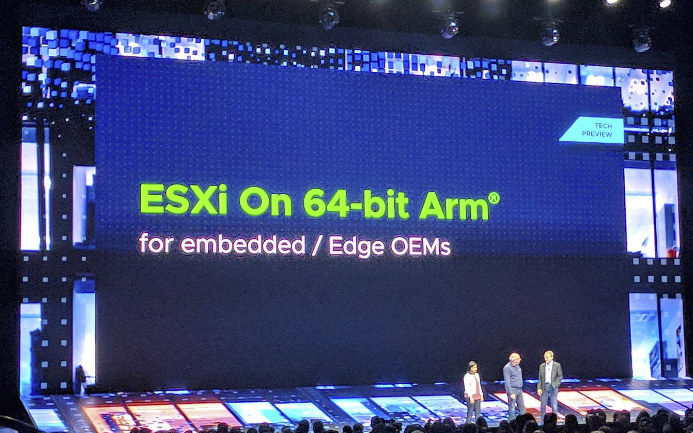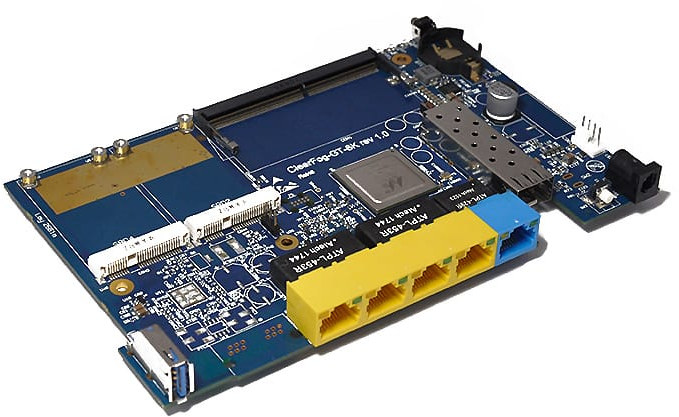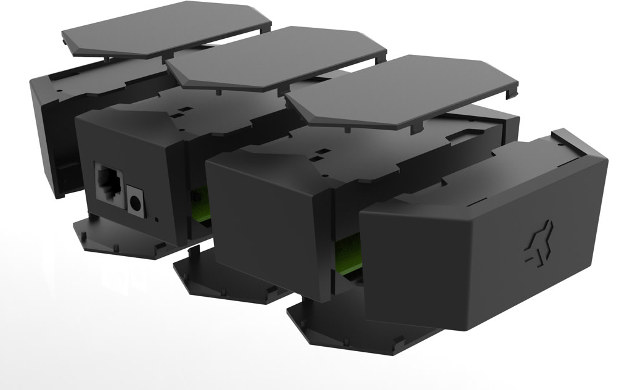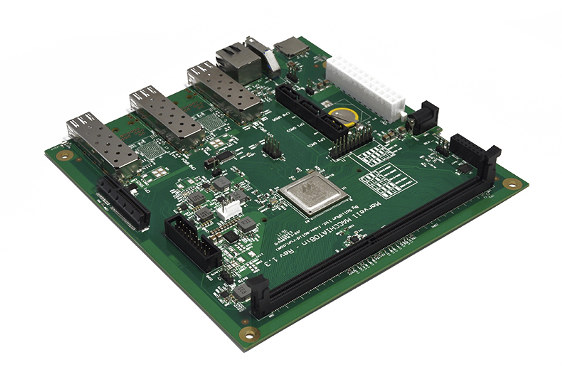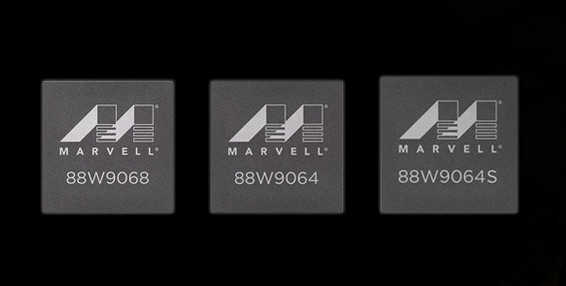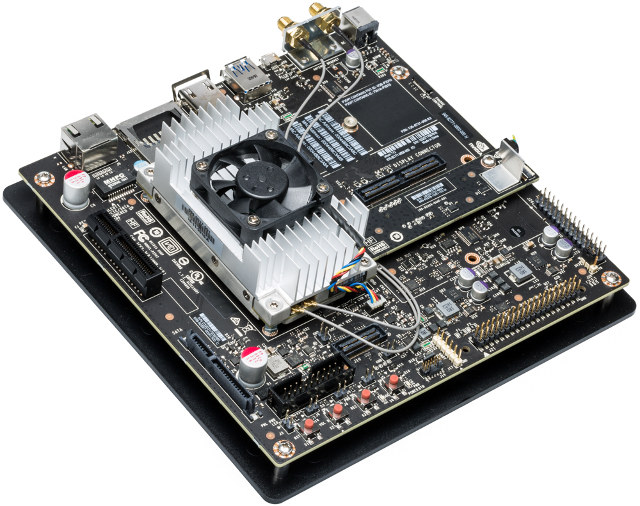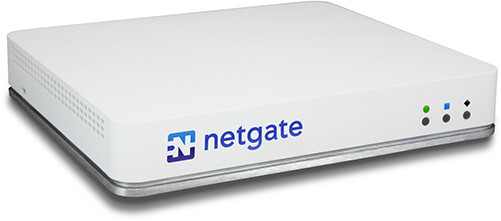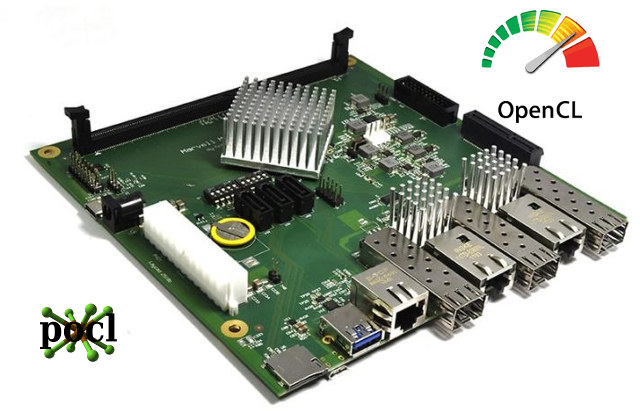As I checked my Twitter timeline in Thunderbird this morning, I started to see a lot of tweets about #VMworld2018 and “ESXi on 64-bit Arm”. What is that? VMWare has just announced and showcased several technology innovations at VMworld 2018, including Virtualization on 64-bit ARM for Edge, and the company demonstrated ESXi on 64-bit ARM running on a windmill farm at the Edge. It may be useful to readers (and this writer) to look up what ESXi is and does exactly. As explained on VMWare website: VMware ESXi is a purpose-built bare-metal hypervisor that installs directly onto a physical server. With direct access to and control of underlying resources, ESXi is more efficient than hosted architectures and can effectively partition hardware to increase consolidation ratios and cut costs for our customers. So basically it’s an hypervisor that stays a close as possible to the hardware to keep performance optimal, and […]
ClearFog GT 8K is a High-End Networking SBC Powered by Marvell ARMADA A8040 Processor
A few years ago, SolidRun launched ClearFog Pro and Base router boards based on Marvell ARMADA 388 Armv7 (32-bit) processor, and about a year later, the company introduced MACCHIATObin networking board powered by a more powerful Marvell ARMADA 8040 quad core Cortex A72 processor. The company has now given an upgraded to its ClearFog family with ClearFog GT 8K networking board powered on the same ARMADA A8040 processor as on the community board, and offering support for up to 16GB RAM, 6 network interfaces including one 10GbE SFP+ cage , and three mPCIe slots. ClearFog GT 8K specifications: SoC – Marvell ARMADA A8040 quad-core Cortex A72 processor up to 2GHz (commercial), up to 1.6 GHz (industrial) Memory – DIMM slot for up to 16GB DDR4 Storage – Up to 128GB eMMC flash, 64 Mbit SPI flash, micro SD slot, M.2 SSD via optional M.2 mPCIe adapter Connectivity 4x 1GbE switched LAN […]
Turris MOX is a Modular Router with WiFi, SSD, LTE Modem, Ethernet, and SFP (Fiber) Modules (Crowdfunding)
The makers of Turris Omnia router – powered by a Marvell ARMADA 385 processor and running Turris OS based on OpenWrt – have been working a new product: Turris MOX modular router which can be extended with mPCIe add-on cards for LTE, SFP cage, M.2 SSD, and so on. They will soon launch an Indiegogo campaign for it, but in the meantimes, CZ.NIC association has a pre-campaign for a $69 MOX access point with dual band WiFI card, and intended for Turris Omnia users. The full details are not available, although we can find out a little more through root.cz and the video embedded below. The system is comprised of a basic MOX A module powered by a dual-core Armada 3720 processor coupled with 512 MB RAM, as well as USB 3.0, Gigabit Ethernet, and an I/O expansion header with GPIO, SDIO, UART and I2C. There’s also an mPCIe port […]
SolidRun MACCHIATObin Single Shot Networking Board Launched for $269 and Up
Earlier this month, I listed SoliRun MACCHIATObin networking board as one of the top 5 most powerful ARM boards in 2017/2018, thanks to its fast quad core Cortex A72 processor, support for up to 16GB RAM, three SATA interfaces, and network connectivity options with several Ethernet copper/SFP interfaces up to 10 Gbps. The problem with powerful boards is that they can be expensive, and the original MACCHIATOBin (Double Shot) board sells for $369 and up. The good news is that SolidRun has just launched a cheaper version called MAACHIATOBin Single Shot with a quad core Cortex A72 processor limited to 1.6 GHz (instead of 2.0 GHz), and the two 10 Gbps interface are only accessibly through SFP cages, and not Ethernet copper (RJ45) ports anymore. MACCHIATOBin Single Shot is based on the same PCB as the original version of the board, and the rest of the specifications are just the […]
Marvell 802.11ax WiFi Chips are Designed for Enterprise Gateways, Mainstream Routers, and Set-Top Boxes
High-Efficiency Wireless (HEW), better known as 802.11ax, is a new WiFi standard that is supposed to deliver up to 10 Gbps bandwidth over 2.4 and 5.0 GHz frequencies, and improve the average throughput per user by a factor of at least 4 times in dense environments. Several draft of the specifications have been voted on, but the latest 802.11ax timeline seems to indicate the final 802.11ax specifications will only be approved sometimes in 2019. This has not prevented companies to announce or unveil 802.11ax SoC or solutions based on the draft specifications, as we’ve seen in the past with NXP Layerscape LA1575 programmable WiSoC, Qualcomm gateway reference design, and Broadcom Max WiFi chips. Marvell has now joined the fray with their 802.11ax wireless portfolio. All Marvell 802.1ax WiSoCs support all using uplink & download OFDMA / MU-MIMO, 1024 QAM, off-channel spectrum scanning, dedicated in-service monitoring, and precision location. Three SKUs […]
Top 5 Most Powerful Arm SBCs & Development Boards in 2017 / Early 2018
Raspberry Pi, Orange Pi, and NanoPi boards among others are all great and inexpensive Arm Linux development boards that do good enough job for many tasks, but they may not cut it if you have higher requirements either in terms of CPU power, GPU capabilities and performance, I/O bandwidth, and in some cases software and support. So I’ve decided to make a list of 5 single board computers or development boards that I consider to be the most powerful in 2017, early 2018. I have limited the price to $1,000 maximum, the board must be easy to purchase for most people (e.g. you don’t need to be a tier-1 automotive supplier, or operate your own datacenter), and in case the board is not quite available yet, the likeliness of actual launch must be reasonably high. Those criteria for example exclude Intrinsyc Open-Q 835 development kit since it costs $1.149 and […]
Netgate SG-3100 is an ARM based pfSense Firewall Appliance
pfSense software is a popular open source firewall distribution based on FreeBSD operating system that is entirely managed via a web interface. Up until recently, FreeBSD (see comments section) pfSense would only support x86-64 (Intel or AMD hardware). But progress has been made with pfSense (and FreeBSD) for ARM, and Netgate, the company behind pfSense, is now selling two ARM based firewall appliances with SG-1000 microFirewall powered by Texas Instruments AM3352 Cortex A8 SoC, and sine a little over of month, SG-3100 firewall appliance based on a more suitable Marvell dual core Cortex A9 processor. Netgate SG-3100 hardware specifications: Processor – Marvell ARMADA 38x 88F6820 dual core ARM Cortex-A9 @ 1.6 GHz with NEON SIMD and FPU System Memory – 2GB DDR4L Non ECC Storage – 8GB eMMC Flash Network Interfaces 2x Gigabit Ethernet configured as dual WAN or one WAN one LAN 4x ports Gigabit Marvell 88E6141 switch, uplinked […]
First OpenCL Encounters on Cortex-A72: Some Benchmarking
This is a guest post by blu about his experience with OpenCL on MacchiatoBin board with a quad core Cortex A72 processor and an Intel based MacBook. He previously contributed several technical articles such as How ARM Nerfed NEON Permute Instructions in ARMv8 or OpenGL ES development on Ubuntu Touch. Qualcomm launched their long-awaited server ARM chip the other day, and we started getting the first benchmarks. Incidentally, I too managed to get some OpenCL ray-tracing code running on an ARM Cortex-A72 machine that same day (thanks to pocl – an LLVM-based open-source OCL multi-platform implementation), so my benchmarking curiosity got me. The code in question is an OCL (half-finished) port of a graphics demo from 2014. Some remarks of what it does: For each frame: a single thread builds a sparse voxel octree from a dynamic voxel scene; the octree, along with current camera settings are passed to an […]


